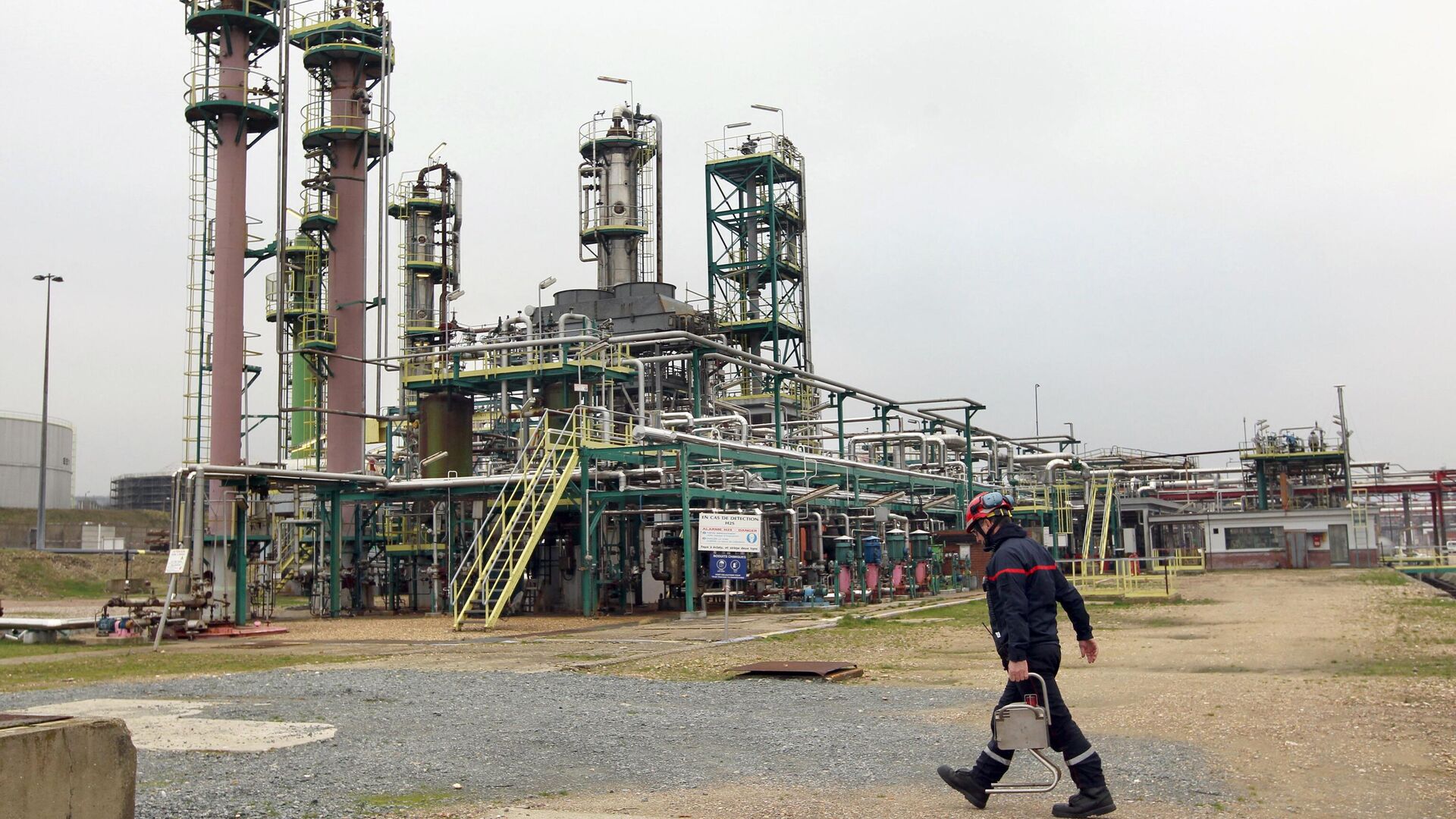US Capitalizing on EU Energy Crisis & Recession But Blowback Round the Corner, Experts Warn
18:00 GMT 12.09.2022 (Updated: 14:20 GMT 15.11.2022)

© AFP 2023 / KENZO TRIBOUILLARD
Subscribe
White House officials suggest that the economic effect of an EU recession on the US will be "modest" with some US economists claiming that Europe's economic slump "may actually be positive" for the country, according to the Washington Post.
"The European Union (EU) is already headed towards the harshest recession one can imagine as a result of skyrocketing energy prices and a huge reduction in the purchasing power of Europeans and also the horrendous financial costs of shipping huge volumes of weapons to Ukraine," said Dr. Mamdouh G Salameh, an international oil economist and a global energy expert.
Last month, US multinational financial services company Goldman Sachs observed that there is a 60% chance that the Old Continent will slide into a recession over the next 12 months due to the unfolding energy crisis. At the same time, the company put the probability of a US recession at 30%.
White House officials believe that "the growing likelihood of a recession in Europe is unlikely to change under the current trajectory," according to the Washington Post. The officials told the newspaper that the impact on the US from a European recession would be "modest and manageable," citing Treasury Department and Council of Economic Advisers estimates.
For his part, Dean Baker, co-founder of the Center for Economic and Policy Research, went even so far as to claim that the US may benefit from the negative EU trend: "If Europe goes into recession, there’s obviously less demand for a wide range of products. We’re in such a perverse situation here [that] it may actually be positive," he told the newspaper.
The US is set to capitalize on the European energy crisis and is doing nothing short of sacrificing EU security, according to Dr Gal Luft, co-director of the Institute for the Analysis of Global Security and senior advisor to the US Energy Security Council.
After the beginning of the Russian special military operation to de-Nazify and demilitarize Ukraine, Washington persuaded Europe to join its anti-Russia energy embargo. However, the move sent oil and gas prices even higher, leaving the EU to struggle with sanctions blowback.
"The scores of LNG tankers currently crossing the Atlantic is a testimony of US commitment to replace Russian gas with North American one," explained Luft. "The issue is that US supply is insufficient to replace Russia’s supply and the shift from piped Russian gas to LNG will take years and billions of euros to materialize, at a time Europe is under extreme economic pain. To be sure, the US wants to displace Russian gas from Europe so it can gobble this market share."

7 September 2022, 15:53 GMT
Anti-Russian Energy Embargo Dangerous for US
Still, the US' anti-Russia energy strategy is a double-edge sword, according to Salameh: "Were Russia to stop totally its gas supplies to the EU, US economic benefit will increase at the expense of the EU in the short term but it could pay a huge geopolitical price in the form of a future schism with the EU," he stresses.
While the US believes that the weaker the EU gets, the less ability it will have to resist its political pressure, Europeans "will eventually see the US in its real colors [as] a sinister and greedy empire who will renege on any agreement or treaty if it doesn’t serve its interests and drop its friends without a moment’s hesitation or embrace new authoritarian friends if it serves its interests of the moment," Salameh noted.
On the other hand, a complete shutdown of Russian oil exports would seriously harm the US economy by giving a further boost to global energy prices, the WaPo noted, citing Treasury chief Janet Yellen. Yellen has urged allies to unify around a set price for purchasing Russian oil for months, insisting that the measure could curtail Russia's earnings "while safeguarding the world economy from energy shocks," according to the newspaper.
"The United States currently imports more than nine million barrels a day," explained Salameh. "Any rise in crude oil prices enhances the United States’ oil import bill, widens its budget deficit and adds to its outstanding debts currently exceeding $26.5 trillion."
On the other hand, western energy companies are not ready to fill Russia's shoes if its energy exports come to a halt, since they have been told for years by their political elites that "the era of fossil fuel is over," remarked Luft. He further noted that both Ursula von der Leyen and Yellen publicly reaffirmed this position only last week.
"With such signals, why would companies make multi-billion-dollar investments only to be told when the fighting in Ukraine is over that their product is no longer needed?" Luft asked rhetorically.
Furthermore, at the end of the day, the idea that the US could benefit from a recession in Europe looks ludicrous, according to the think tank founder.
"Europe is America’s most important trading partner and a recession there will immediately spill over to the US. A strong US dollar will make US exports to Europe less competitive and this would undercut US efforts to reindustrialize itself. A European recession can also trigger a debt crisis which will force the US to intervene. Nothing good could come out of this."
West Pursuing Self-Destructing Agenda
Luft agrees that there are elements of self-destruction in the US and European policies with regard to Russia.
"What gives western leaders the ability to go down this path is the fact that by and large the public is still tolerating the pain," he argued. "But this will not last for long. Once the protest movement in Europe gains momentum and becomes a threat to European political elites, the pendulum will swing very quickly. There is nothing that can change people's perceptions and priorities faster than a cold European winter."
Washington is continuing to wage nothing short of a real war against Russia to reach three major objectives, according to Salameh. First, it is seeking to weaken Russia. Second, the US is trying to undermine Moscow's strategic alliance with Beijing. Third, it is striving "to slow down the transformation of the world order from a unipolar power led by the United States to a multipolar one being actively ushered by Russia and China."
Nonetheless, "the harsh sanctions imposed on Russia have failed miserably so far," according to him.
"In fact, I go as far as to say that the sanctions have been hurting the economies of western countries rather than Russia," the international oil expert underscored. "The United States and the EU are already paying a horrendous economic price whilst the real winner so far has been Russia, the world’s real superpower of energy."



